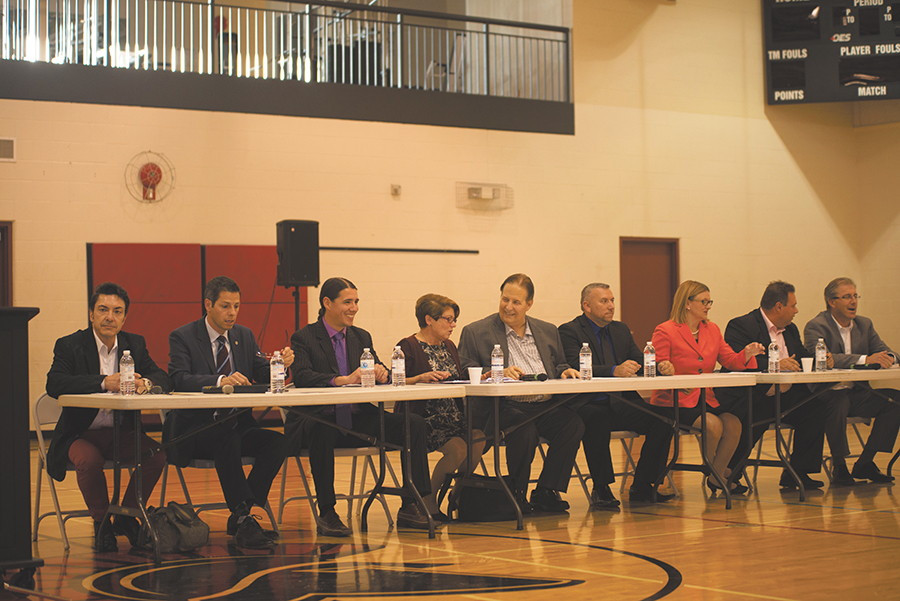A city divided
Winnipeg all mayoral candidates forum on ethno-cultural issue
Understanding diversity and practising diversity are two very different things.
It seems that most Winnipeggers understand what a diverse city is, seeing it as a city made up of many cultures, races, and identities. But, outside of Folklorama, Winnipeg is not a diverse city in practise. Winnipeg is - unintentionally - being sectioned off into a variety of ethnic enclaves that only serves to divide us.
For example, the North End of Winnipeg is predominantly home to aboriginal people, about 70% of all refugees live downtown, Filipino immigrants predominantly reside in northwest Winnipeg (Maples) and south of the University of Manitoba is home to the growing Chinese community. Even in St. Boniface, where the segregation between Franco-Manitobans and French-speaking West African communities is growing, we see “diversity” can only be truly acknowledged when looking at Winnipeg as a whole, rather than looking at its parts.
The problem is in practice these parts don’t seem to communicate very well with each other, and the well-meaning politicians who hope to unify the city don’t quite understand how.
This is what I recognized while attending a mayoral candidates’ forum organized by the Manitoba Filipino Business Council (MFBC) on Aug. 26. As the only mayoral forum that is hosted by a visible minority group, I expected to hear candidates address some ethno-cultural-specific issues. But most importantly I was hoping to hear their vision for creating a city where diversity is reflected in our shared experiences and communities.
What I heard surprised me.
Rather than hearing about their vision for a diverse city, they placated the audience of mostly immigrants by both stereotypes and niceties. Candidate Gord Steeves expressed his admiration for the “independent spirit of immigrants”. Candidate Brian Bowman simply said “when you are here, you are a Winnipegger… you are proud of who you are.” Many candidates discussed their own ethnicity, and some were proud to have their campaign slogans translated into various languages. But even in the context of a forum, their understanding of diversity was simply about the make-up of the city, rather than the cohesiveness of it or what newcomers truly need.
There are actual ways to address the challenges facing immigrants, including support in finding homes, jobs, education on sexual assault, health conditions, and how to deal with racism. There was no discussion on promoting cross- and inter-cultural partnerships between community groups, nor were there ideas on how to bring groups together.
To truly understand and practise diversity, I believe cross-cultural interaction is important.
Hipolito Alibin Jr., vice-president of the MFBC, says it is important for the candidates to realize that we want to be heard collectively.
Winnipeg is a city that embraces about 100 languages and nationalities, yet ethno-cultural issues are still under-addressed in this mayoral race.
The division that is building in Winnipeg will not help build a sense of belonging for immigrants. With the election being less than two months away, we can only hope that someone recognizes the need to talk about building bridges - not over roads, but between communities.
Published in Volume 69, Number 1 of The Uniter (September 3, 2014)







